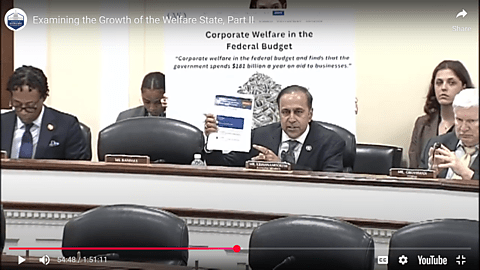
Financial privacy has been under fire for decades, but that hasn’t stopped government officials from trying to establish even more invasive approaches. As detailed in a new letter from Senator Tim Scott (R‑SC), there are now concerns that the Financial Crimes Enforcement Network (FinCEN) has “urged private financial institutions to surveil customers’ transaction‐level data using politically charged search terms.”
Senator Scott’s letter centers around allegations that FinCEN instructed financial institutions to search for transactions that included terms like “MAGA” and “Trump” as well as transactions for the legal purchase of firearms. However, as Senator Scott noted, this problem is all too familiar. It was only a decade ago that the Department of Justice initiated “Operation Choke Point” under the Obama administration.
For those that might not be familiar, Operation Choke Point set out to go after so‐called controversial businesses (e.g., state‐licensed cannabis dispensaries, payday lenders, pawn shops, or gun shops) with the intent of, as one official described it, “choking them off from the very air they need to survive.”
Yet the problem here deals with only a small piece of a much larger system. While it’s a problem to see political motivations driving financial surveillance, it also shouldn’t be lost that this surveillance is a problem in and of itself.
Under the Bank Secrecy Act and the many expansions that followed, financial institutions were required to file over 26 million reports on customer activity to FinCEN in 2022. Worse yet, under the third‐party doctrine, the government can also get access to most financial records without a warrant because the “Right to Financial Privacy Act” rarely actually establishes a right to financial privacy.
So, Senator Scott is correct in explaining that, “These allegations, if true, represent a flagrant violation of Americans’ privacy and the improper targeting of U.S. citizens for exercising their constitutional rights without due process.” Yet the problem runs far deeper than any one abuse of power.
It may not be easy to make changes during an election year, but affirming that the Fourth Amendment should protect people from warrantless government searches should not be a difficult decision.
When surveyed, 83 percent of the American people say that the government should need a warrant to access their financial records. It’s time for Congress to make that a reality.



